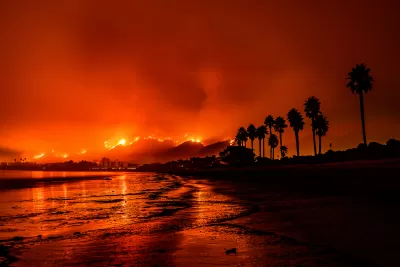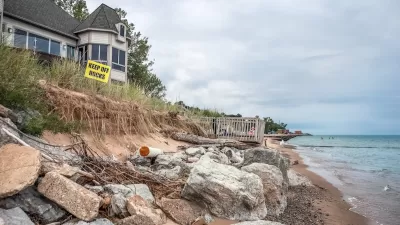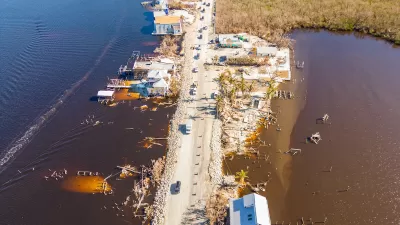The proposed state general obligation bond would address the need to protect communities and natural resources from the impacts of climate change.

California is increasingly experiencing the impacts of climate change, including sea level rise, increased severity and frequency of wildfires, changes in precipitation that increase the risk of both drought and flooding, and increases in temperatures that can adversely impact air quality, public health, and habitats.
State legislators are now considering issuing a general obligation bond to address the need to protect communities and natural resources from the impacts of climate change. If approved by both houses and signed by the Governor, California voters would see the $15.5 billion bond measure on a 2024 statewide ballot in either March or November.
The initiative dedicates funding for projects to:
- Reduce fire risk near communities and ensure forests are healthy enough to withstand more intense wildfires;
- Reduce the risk of catastrophic flood events by slowing and capturing runoff, which will improve groundwater infiltration and help to stabilize drinking water supplies;
- Protect coastal communities from sea-level rise; and
- Help urban communities adapt to rising temperatures by reducing heat-island effects through greening projects such as parks and supportive measures such as cooling centers.
General obligation bonds are debt that is secured by the General Fund; the debt service on bonds issued by the state must be paid on an annual basis. Fully paying off a bond issue can take decades (sometimes 30 or more years). Bonds issued by the State of California are able to obtain favorable financing because interest on these bonds is tax exempt. Per the California Constitution, voters must approve general obligation bonds in excess of $300,000. There are two pathways to the ballot for general obligation bonds that exceed this $300,000 threshold: 1) through an act of the Legislature; and, 2) via the citizens’ initiative process.
FULL STORY: $15.5 Billion 'Climate Resiliency Bond' Getting Ready for Voters on 2024 Ballot

Maui's Vacation Rental Debate Turns Ugly
Verbal attacks, misinformation campaigns and fistfights plague a high-stakes debate to convert thousands of vacation rentals into long-term housing.

Planetizen Federal Action Tracker
A weekly monitor of how Trump’s orders and actions are impacting planners and planning in America.

San Francisco Suspends Traffic Calming Amidst Record Deaths
Citing “a challenging fiscal landscape,” the city will cease the program on the heels of 42 traffic deaths, including 24 pedestrians.

Defunct Pittsburgh Power Plant to Become Residential Tower
A decommissioned steam heat plant will be redeveloped into almost 100 affordable housing units.

Trump Prompts Restructuring of Transportation Research Board in “Unprecedented Overreach”
The TRB has eliminated more than half of its committees including those focused on climate, equity, and cities.

Amtrak Rolls Out New Orleans to Alabama “Mardi Gras” Train
The new service will operate morning and evening departures between Mobile and New Orleans.
Urban Design for Planners 1: Software Tools
This six-course series explores essential urban design concepts using open source software and equips planners with the tools they need to participate fully in the urban design process.
Planning for Universal Design
Learn the tools for implementing Universal Design in planning regulations.
Heyer Gruel & Associates PA
JM Goldson LLC
Custer County Colorado
City of Camden Redevelopment Agency
City of Astoria
Transportation Research & Education Center (TREC) at Portland State University
Jefferson Parish Government
Camden Redevelopment Agency
City of Claremont





























